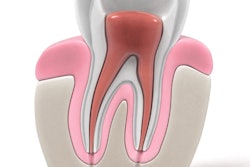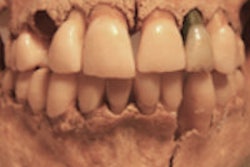Researchers from Canada have discovered that tooth dentin is permanently altered when the body is deficient of vitamin D.
The researchers from McMaster University in Ontario found that permanent microscopic abnormalities form in the tooth's dentin layers when the body lacks vitamin D, creating a record like tree rings that can be analyzed later.
The finding, which was published in the Journal of Archaeological Science (July 18, 2016), can provide anthropologists a better sense of the daily lives and challenges of earlier civilizations based on their skeletal remains. Before the study, researchers had to use bone, which was problematic because bones constantly remodel during life and they are more likely to break down after death in soil. Dentin is not remodeled, however, and tooth enamel protects it after death, which makes teeth a source of accurate archaeological information, the study authors noted.
The researchers compared teeth of modern-day people to those extracted from bodies buried in Quebec and France in the 18th and 19th centuries.



















